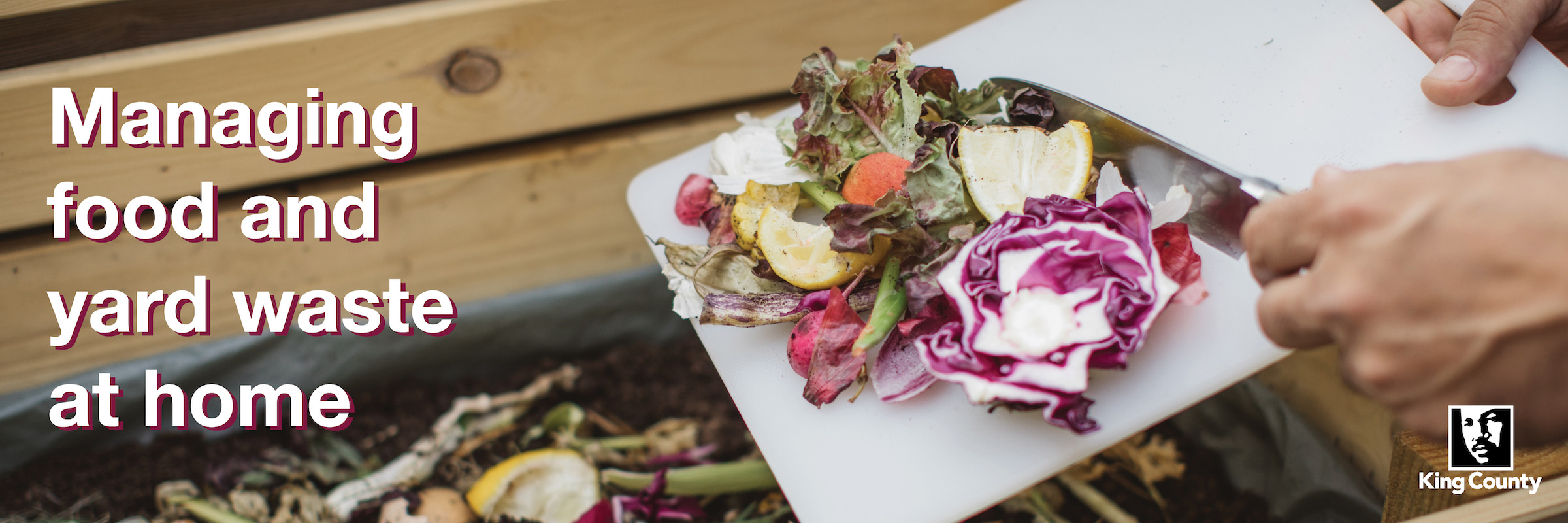Public survey will help King County develop strategies that reduce food waste, cut greenhouse gas emissions
Summary
King County Solid Waste Division invites the public to share feedback about proposed strategies to keep more food waste out of the garbage. An anonymous online survey about food and yard waste management is available starting today.
Story
What do you do when good food goes bad? Or when those dinner scraps aren’t suitable for the stock pot? While many in King County can throw their scraps in the compost bins, many do not use or have access to curbside compost pickup. It is currently estimated that more than 20% of what goes to King County’s landfill is food waste, creating potent greenhouse gas emissions when it decomposes.
To help get more food waste out of the garbage, King County Solid Waste Division is hosting an online survey that starts today and ends April 30. The survey will help the county better understand how residents in different parts of the county manage their garbage and food waste and help inform future policies to reduce food waste going to the landfill, protect the environment, and meet the needs of our communities.
The survey work is part of Re+, King County’s new initiative to reinvent the region’s waste system to significantly cut greenhouse gas emissions and transition to a sustainable economy. Some of the best opportunities for improvement are in food waste.
Businesses and households in King County in 2019 threw out enough edible food to feed everyone in Kirkland – about 92,000 people – for an entire year. Food production requires large amounts of resources, particularly water and energy, while creating significant greenhouse gas emissions. If food is not eaten and ends up at the landfill, its decay can create methane, a potent greenhouse gas.
Relevant links
For more information, contact:
Joe Basile, Solid Waste Division, 206-848-0496

 Translate
Translate
